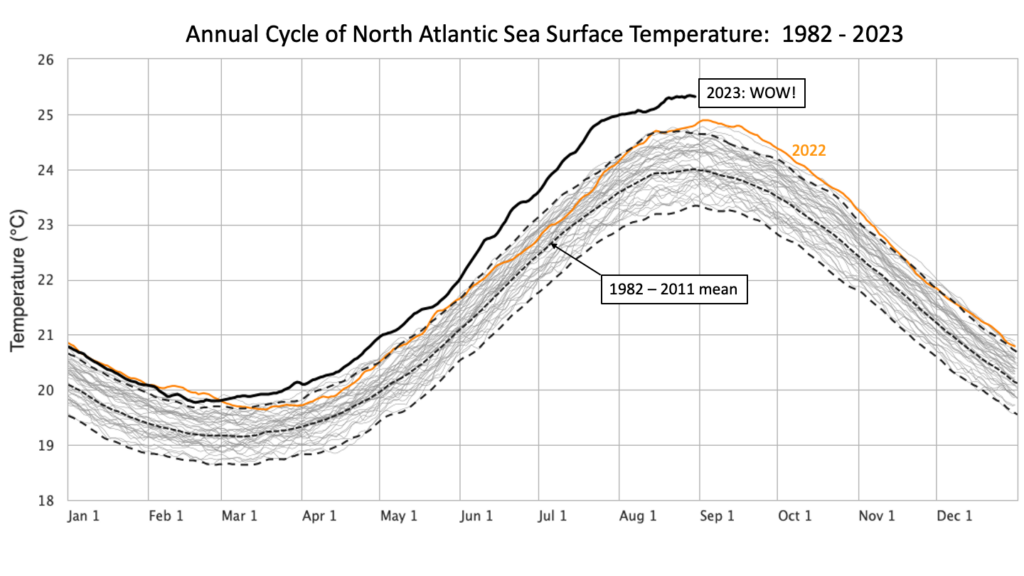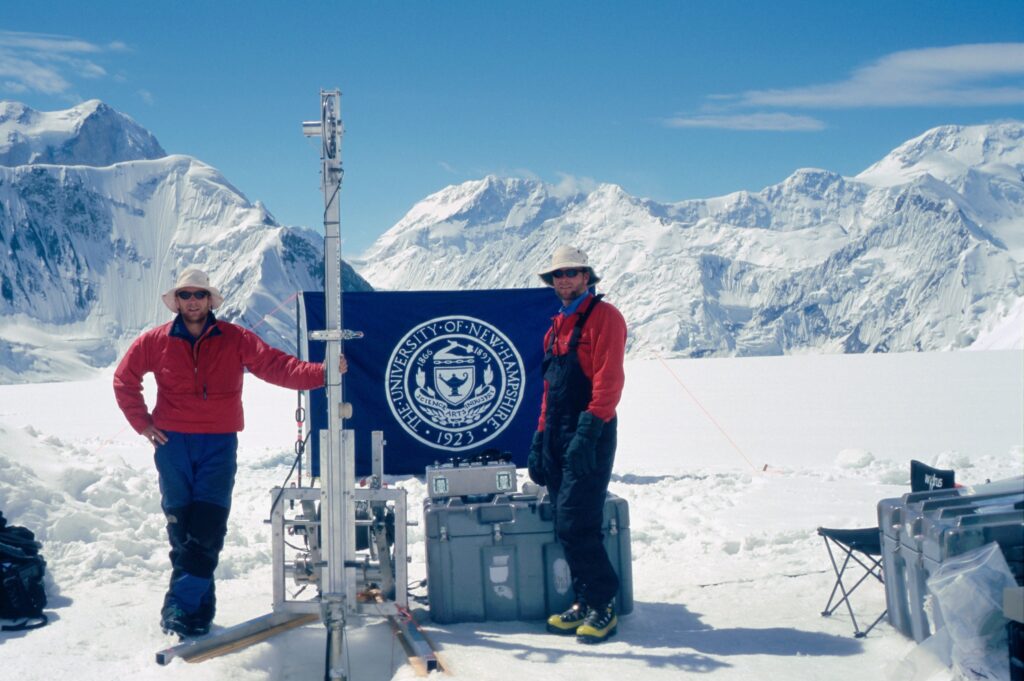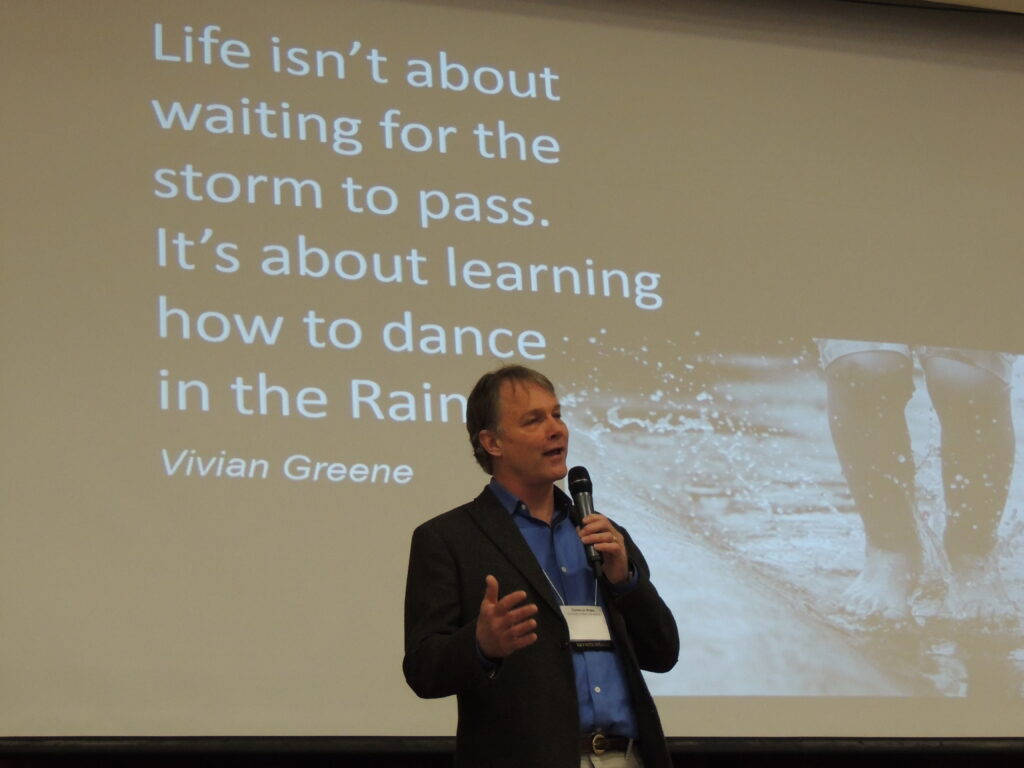The signals of global climate disruption are everywhere this summer – from July being the hottest month ever recorded to scorching heat waves on three continents to an extreme marine heatwave in the North Atlantic to record-breaking wildfire season in Canada to record low sea-ice extent around Antarctica to devastating floods across the Northeast U.S – change is in the air.
Change is in the air, in the water, in the ice, and in the forest. The dramatic increase in weather and climate disasters in a world warmed by human-derived greenhouse gases are not unexpected; rather they have been projected by climate scientists in climate assessments at the regional, national, and international level for decades. What is a little surprising is the frequency and severity of the impacts occurring during this one summer. And of course, the world has experienced heat waves and wildfires and floods before. What is different today is that the odds of these events occurring are substantially increased by a climate system on steroids.
Let’s focus on one of these. The marine heatwave in the North Atlantic is clearly apparent in the annual cycle of daily sea surface temperatures in the North Atlantic. For much of July and August 2023, sea surface temperatures have been more than 1.1oC/2.0oF warmer than average, representing a huge swing in sea surface temperatures that clearly outside the envelope of year-to-year variability.

Why is this occurring? As with most change in the climate system – it’s complicated and includes several factors: a reduction in wind speed off the coast of Africa that reduces upwelling of cool water and reduces that amount of Sharan dust in the atmosphere that scatters incoming sunlight; a decrease in particulate pollution over Europe and North America – good for public health but also results in a reduction of the scattering of incoming sunlight; longer-term changes in circulation and heat transport in the North Atlantic; and warming of the oceans as a result of global warming.
Of importance is that approximately 90% of the excess energy associated with global warming has been absorbed by the oceans. This extraordinary warming of the North Atlantic no doubt has impacts on marine ecosystems. For example, a 100 mile long algal bloom was recently discovered in the Gulf of Maine extending from Penobscot Bay to Martha’s vineyard.
The bad news is that human activities – from the burning of fossil fuels to our industrial agricultural systems – are driving global climate disruption resulting in weather and climate disasters around the world. The good news is that if we are the problem, then we are also the solution. On that front, recent analysis suggests that the clean energy revolution is happening faster than you think it is. Now we just need to ensure it is sustainable and equitable.
While there will always be bad news, my optimism that we can collectively build a more sustainable future is grounded in three decades of productive interdisciplinary collaborations with students and colleagues from across New England. These collaborations have already proven that we can, and indeed must, balance the values of social well-being, economic vitality, and environmental stewardship today and in the future. More on that in future blogs.
Change is in the air for me as well. I spent the past 36 years at the University of New Hampshire deciphering the climate and environmental change records preserved in glaciers from the Himalayas, Central Asia, and the Arctic, communicating the risks posed by anthropogenic climate change to the UNH community and local, state, and national policy makers, and pursuing sustainable solutions to global climate disruption. While we have made progress on addressing the climate crisis, the challenges of both reducing our carbon pollution and adapting to a hotter world will be with us for decades.

I am now at a point in my life where I need to move beyond a focus on creating new knowledge – as rewarding as that has been. I want to strive for something bigger, something more – and that is grounded in helping students develop knowledge and perspective and confidence to address sustainability challenges related to healthy people, healthy communities, and healthy ecosystems.
I am fascinated by the bold vision that is UNE North, especially at the intersection of innovation and collaboration with respect to climate change and human health here in Maine, New England, and the North Atlantic region. And I am thrilled to be the new Director of UNE North as it connects my desire to build collaborations to address grand sustainability challenges with my dedication to educating the next generation of sustainability professionals and leaders with my love of Maine, New England, and the Arctic. I anticipate engaging with UNE students, staff, and faculty in collaboration with our many external partners to build a more sustainable future. I invite you to get in touch so we can build this future together.

Notes:
July 2023 confirmed as hottest month on record
Heat Waves Grip 3 Continents as Climate Change Warms Earth
‘Beyond extreme’ ocean heat wave in North Atlantic is worst in 170 years
Canada faces ‘long, tough summer’ of wildfires with even hotter temperatures
The mystery of the missing Antarctic sea ice
The exceedingly low odds of Vermont’s flooding disaster, visualized
Record-breaking North Atlantic Ocean temperatures contribute to extreme marine heatwaves
Ocean Warming
Researchers are tracking a large algal bloom spanning 100 miles in the Gulf of Maine
The Clean Energy Future is Arriving Faster Than You Think

